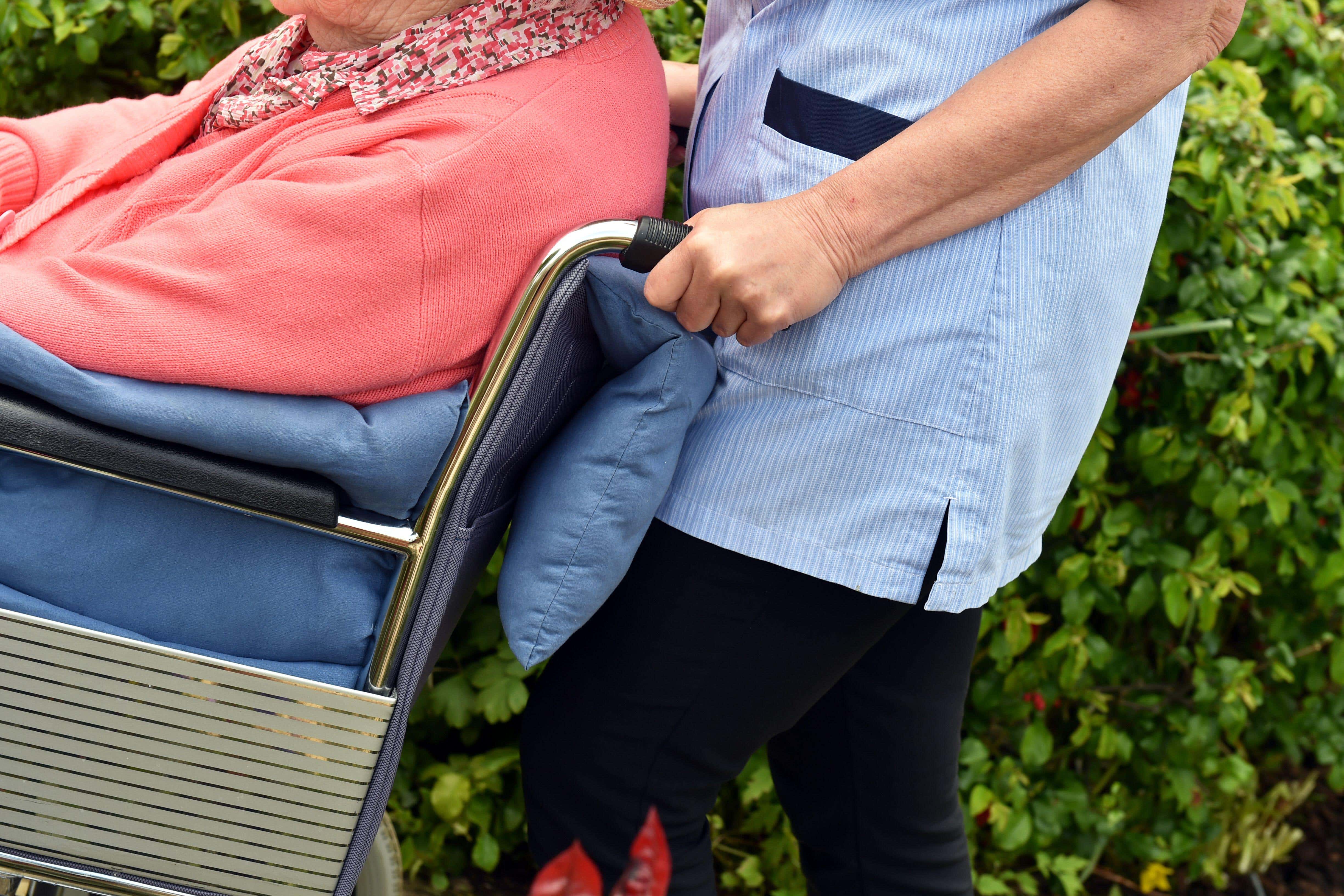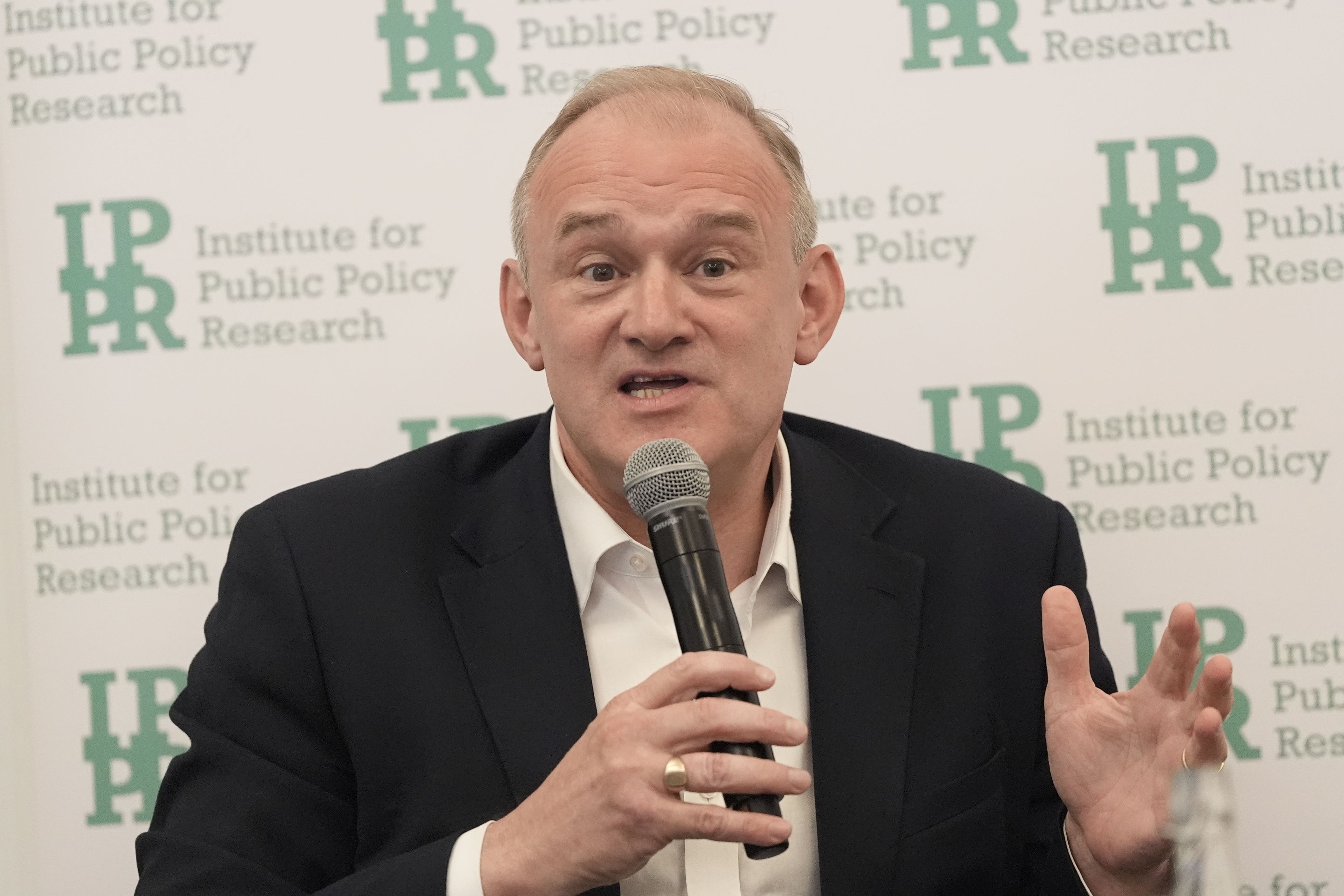The UK’s care system is at breaking point, a new report has found, after the number of full-time unpaid carers increased by more than 70 per cent in the last two decades
Latest research shows that the number of people providing 35 hours or more a week of care has increased from 1.1m in 2003/04, to 1.9m in 2023/24, with a growing demand and shrinking supply impacting those in need.
Martin McGowan, 72, and his wife Sue, 69, have spent the best part of three decades caring for one another due to their complex health conditions.
It was in 1995 that Mr McGowan’s first began to experience heart issues, with his consultant cardiologist describing his family history of heart conditions as a “nightmare”. He quickly went from being a fit and able caretaker for Hampton Council, to being on oxygen and struggling to work.
His wife has also undergone more than 30 operations for a myriad of issues, which first began 37 years ago after undergoing a c-section for the birth of their son.

Over the years, they have only once relied on the local authority for care services, but have been significantly impacted by the lack of support available due to funding cuts.
“My wife used to go to day groups that were useful and very helpful for her, but they were all cut down. It’s been cut right across the board, we’ve watched everything be knocked out over the last 30 years. It’s crazy”, Mr McGowan said.
“They talk about care in the community but the problem was that the care there had been gotten rid of, and nothing ever replaced it.”
The research, conducted by the Joseph Rowntree Foundation and the IPPR, found that the quantity of new requests for support had increased from 1.8m in 2015/16, to 2.1m in 2023/24.
The number of working age adults needing care has increased by 31.5 per cent, while the report stated that unpaid care, which is often provided by parents, spouses and adult children, is relied on too heavily to fill the gaps of an inadequate social care system.
“This is the crazy thing, I’ve had the misfortunate to be stuck in an ambulance for six hours and once you’re moved to A&E, you have bed blockers. I’ve been one myself, I’ve been ready to be discharged on Good Friday but the whole Easter weekend, they couldn’t get any social workers to see me to understand what needs I had,” Mr McGowan said.

“I couldn’t be released until the following Thursday or Friday, which means I was blocking a bed which I didn’t need. The systems don’t work, social services don’t work on Bank Holidays and there are no carers available.”
The new report is calling on the government to provide unpaid carers with care leave, workplace rights and income protection through their commitment towards a National Care Service (NCS).
Sir Ed Davey, leader of the Liberal Democrats, said: “I’ve been a carer for most of my life. First as a teenager, nursing my mum during her long battle against bone cancer. Later for my Nanna, organising her care and trying to make her last few years as comfortable as we could. And now for our son John.
“That’s what family is all about: caring for our loved ones. You can hear it in the conversations around every kitchen table, but not often enough around the Cabinet table. And when Ministers do turn their attention to care, they too often focus only on care homes, nurseries, care workers, childminders, and how they are funded. Those are crucial, but they are only part of the picture.
“Most care happens not in care homes but in people’s homes; provided not by paid care staff but by family members and other loved ones. Parents and grandparents, husbands and wives, siblings and children. We don’t talk about it much, but we are a nation of carers.
“So the answers to the care crisis can’t just be about tinkering with the formal systems of childcare and social care as they exist today. We need to take a step back as a country and ask some more fundamental questions about how we can better support families.”
Abby Jitendra, author of the IPPR discussion paper and principal policy adviser at JRF, said: “Millions of us are carers or need care, and this number will surge in the future. But families are being left to navigate a neglected system – paying sky-high costs, sacrificing work to care, and too often going without the support they need. We need to build a care system that works like a public service: universal, affordable, reliable and fair. That means bold reform now – not another decade of drift.”
Dr Parth Patel, associate director at IPPR, said: “We all want and need more care in our lives — yet there are fewer people to provide it. Who will care is one of the great challenges of our age. This is not just a question of tax and spend, but of dignity and mutual obligation.
“The left too often romanticises the Scandinavian model, while the right still treats care as women’s work. Neither will do. Each of us has a duty to care — for our children, our parents, and our neighbours. Most of us actually find it rewarding, and would do more of it if only we had the time.
“That is what a National Care Service must recognise and support: helping us look after one another. And that means bringing a new set of policies into the care conversation — from flexible working hours and paternity leave, to stronger commitments on affordable, high-quality care services.”


